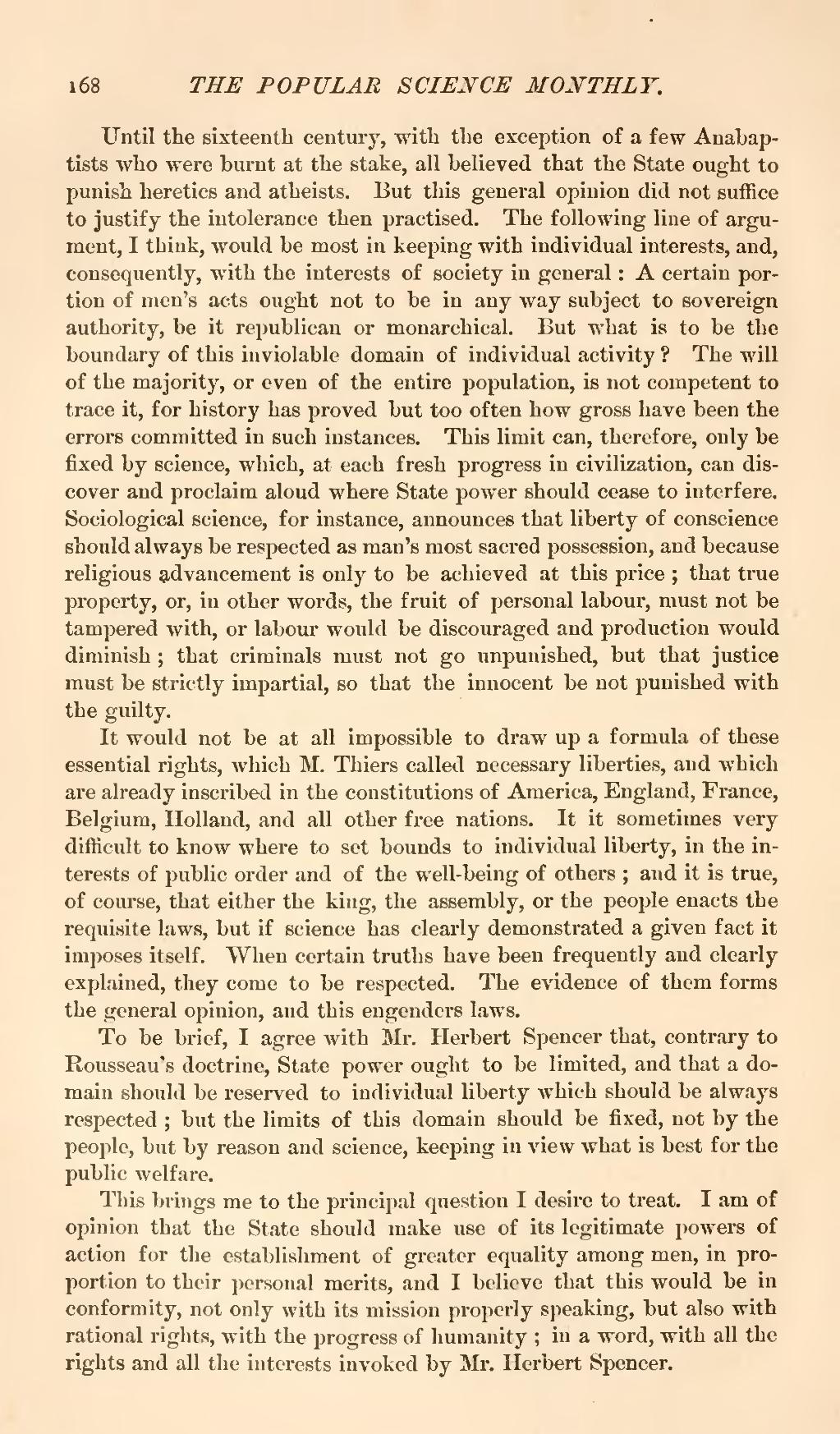Until the sixteenth century, with the exception of a few Anabaptists who were burnt at the stake, all believed that the State ought to punish heretics and atheists. But this general opinion did not suffice to justify the intolerance then practised. The following line of argument, I think, would be most in keeping with individual interests, and, consequently, with the interests of society in general: A certain portion of men's acts ought not to be in any way subject to sovereign authority, be it republican or monarchical. But what is to be the boundary of this inviolable domain of individual activity? The will of the majority, or even of the entire population, is not competent to trace it, for history has proved but too often how gross have been the errors committed in such instances. This limit can, therefore, only be fixed by science, which, at each fresh progress in civilization, can discover and proclaim aloud where State power should cease to interfere. Sociological science, for instance, announces that liberty of conscience should always be respected as man's most sacred possession, and because religious advancement is only to be achieved at this price; that true property, or, in other words, the fruit of personal labour, must not be tampered with, or labour would be discouraged and production would diminish; that criminals must not go unpunished, but that justice must be strictly impartial, so that the innocent be not punished with the guilty.
It would not be at all impossible to draw up a formula of these essential rights, which M. Thiers called necessary liberties, and which are already inscribed in the constitutions of America, England, France, Belgium, Holland, and all other free nations. It it sometimes very difficult to know where to set bounds to individual liberty, in the interests of public order and of the well-being of others; and it is true, of course, that either the king, the assembly, or the people enacts the requisite laws, but if science has clearly demonstrated a given fact it imposes itself. When certain truths have been frequently and clearly explained, they come to be respected. The evidence of them forms the general opinion, and this engenders laws.
To be brief, I agree with Mr. Herbert Spencer that, contrary to Rousseau's doctrine, State power ought to be limited, and that a domain should be reserved to individual liberty which should be always respected; but the limits of this domain should be fixed, not by the people, but by reason and science, keeping in view what is best for the public welfare.
This brings me to the principal question I desire to treat. I am of opinion that the State should make use of its legitimate powers of action for the establishment of greater equality among men, in proportion to their personal merits, and I believe that this would be in conformity, not only with its mission properly speaking, but also with rational rights, with the progress of humanity; in a word, with all the rights and all the interests invoked by Mr. Herbert Spencer.

